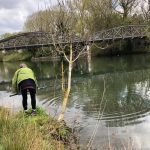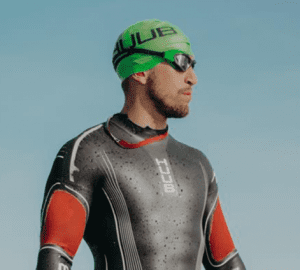Results of Marine Conservation Society’s Great British Beach Clean show concerning volume of PPE litter
This year, the Marine Conservation Society’s annual Great British Beach Clean, supported by players of People’s Postcode Lottery, took place against the backdrop of the Coronavirus pandemic. As the charity introduced measures to ensure beaches could still be cleaned and surveyed in accordance with guidelines, it also asked volunteers to record face masks and plastic gloves for the first time.
The charity’s citizen science project gives an insight into the most common forms of litter blighting UK shores. This year’s results are supported by inland data collected by volunteers embarking on the charity’s Source to Sea Litter Quest.
The results from this year’s Great British Beach Clean show a concerning, but perhaps predictable, presence of PPE litter. Face masks and gloves were found on almost 30% of beaches cleaned by Marine Conservation Society volunteers over the week-long event. The inland Source to Sea Litter Quest data shows a similarly worrying presence of masks and gloves, with more than two thirds (69%) of litter picks finding PPE items.
Lizzie Prior, Gret British Beach Clean Coordinator at the Marine Conservation Society said: “The amount of PPE our volunteers found on beaches and inland this year is certainly of concern. Considering mask wearing was only made mandatory in shops in England in late July, little more than three months before the Great British Beach Clean, the sharp increase in PPE litter should be a word of warning for what could be a new form of litter polluting our beaches in the future.”
Like many other single-use items, disposable face masks and gloves pose a threat to wildlife on land and at sea. Marine animals could mistake face masks and gloves for prey, filling their stomachs with materials which will not break down and could prove to be fatal. Animals also risk being tangled in the straps of face masks, with seabirds’ feet pictured recently being wrapped in the elastic strings.
Drinks litter continues to be found on UK beaches, with an average of 30 drinks containers, caps and lids being found per 100m of beach surveyed this year. Inland, almost all litter picks (99%) found drinks litter. This continued blight to the UK’s shores and inland spaces illustrates the urgent need for governments to follow Scotland’s lead and introduce an all-inclusive Deposit Return Scheme.
Dr Laura Foster, Head of Clean Seas at the Marine Conservation Society, said: “This year’s Great British Beach Clean data, in addition to the Source to Sea Litter Quest data, shows just how crucial it is that Wales, England and Northern Ireland follow in the footsteps of Scotland and urgently introduce an all-inclusive Deposit Return Scheme.
“Despite lockdown, with many of us spending more time at home, littering in public spaces has continued unabated. Almost every single local litter pick found at least one drinks container, which is incredibly concerning. An effective Deposit Return Scheme would take the UK one step closer to a circular economy model and drastically reduce the volume of single-use pollution in the UK’s streets, parks and on our beaches.”







